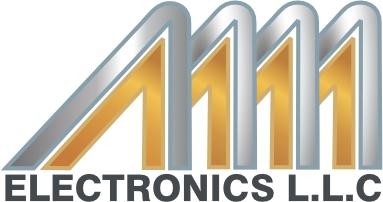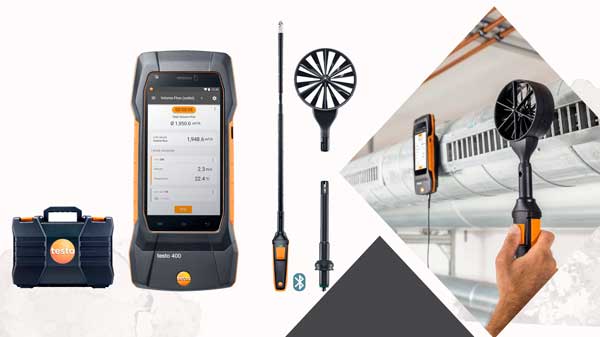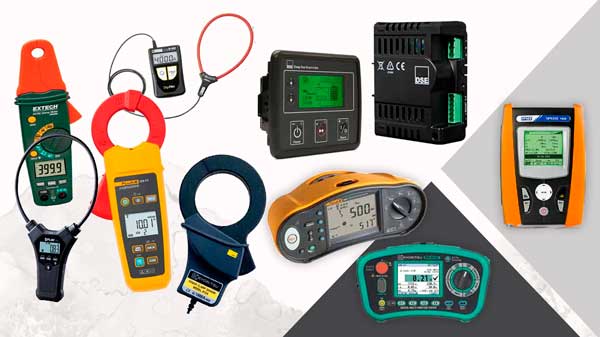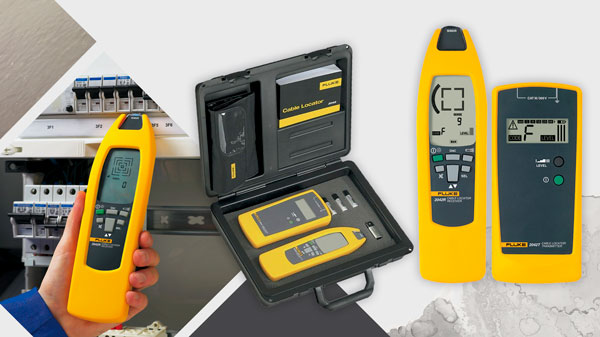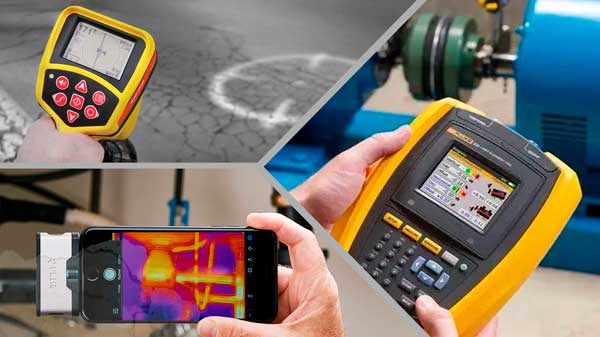In the rapidly advancing world of technology, precision, and reliability are essential for the smooth operation of electronic systems and equipment. To achieve this, professionals across various industries rely on a range of high-end electronic test tools designed for measuring and condition monitoring. These tools are not only crucial for obtaining accurate measurements but also play a pivotal role in preventing and resolving issues before they escalate. In this comprehensive guide, we will delve into the world of professional electronic test tools, exploring their applications, features, and their crucial role in maintaining optimal system performance.
Measuring tools meaning:
Measuring tools, in their simplest form, are instruments used to quantify and evaluate physical properties or dimensions accurately. These tools serve as the foundation for consistency, quality, and precision across multiple domains.
How to Effectively Use Measuring Tools
Measuring tools are indispensable in various fields, ensuring precision and accuracy in tasks ranging from carpentry to scientific research. Understanding how to use these tools effectively is key to achieving accurate results. In this guide, we will explore the efficient use of measuring tools, providing insights and tips to enhance your measuring skills.
1. Choose the Right Measuring Tool
Selecting the appropriate measuring tool for your task is the first crucial step. Each tool is designed for specific measurements, and using the right one ensures accuracy. Consider factors like length, width, and the nature of the object being measured.
2. Read the User Manual
Before using any measuring tool, familiarize yourself with the user manual or instructions provided. This will help you understand the tool’s features, functions, and any specific guidelines for accurate measurements.
3. Inspect and Calibrate
Inspect the measuring tool for any damage or wear that could affect accuracy. Some tools may require calibration to maintain precision. Regular maintenance and calibration are essential for reliable measurements.
4. Secure the Object
When measuring an object’s dimensions, make sure it’s secured in place. Unstable objects can yield inaccurate measurements. Use clamps, fasteners, or any suitable method to prevent movement.
5. Proper Placement
Position the tool correctly. For example, when using a tape measure, ensure it’s straight and not twisted. When using a ruler, align it properly with the object being measured.
6. Take Multiple Measurements
For critical measurements, take multiple readings to ensure consistency. Averaging these readings can provide a more accurate result and reduce the impact of minor errors.
7. Record the Measurements
Keep a record of your measurements, especially if they are vital for a project or task. Accurate records help you maintain consistency and avoid measurement discrepancies.
8. Safety Precautions
Prioritize safety when using measuring tools. Follow safety guidelines to prevent accidents and injuries. For instance, when using cutting tools for measurement, ensure proper protective gear.
9. Proper Technique
Each measuring tool has a specific technique for accurate measurements. Learn and practice the correct method for each tool. For example, when using calipers, gently close the jaws to measure an object’s width.
10. Read Displays Accurately
Some measuring tools have digital displays, while others are analog. Be proficient in reading and interpreting the displays. Ensure you understand the units of measurement being used.
11. Practice and Experience
The more you use measuring tools, the more skilled and efficient you become. Practice and hands-on experience are key to improving your measuring abilities.
12. Seek Expert Guidance
If you are unsure about using a specific measuring tool or need precise measurements for critical tasks, seek guidance from experts or refer to reliable resources. Consulting professionals can be invaluable for complex measurements.
By following these tips and practicing regularly, you can use measuring tools effectively and enhance your accuracy and precision in various tasks. Remember that measurement is a fundamental aspect of many industries, and mastering it is a valuable skill.
Measuring Tools Applications:
1. Length and Distance Measurement
- Measuring tapes and rulers excel in determining lengths and distances in fields like construction, interior design, and DIY projects.
2. Precise Dimensional Inspection
- Calipers, digital or analog, ensure accuracy in measuring dimensions. Industries like engineering, manufacturing, and laboratories rely on their precision.
3. Temperature Monitoring
- Thermometers, from clinical to industrial types, gauge temperature in medical settings, weather forecasting, cooking, and scientific research.
4. Weight Measurement
- Scales, in various forms, are integral in sectors such as retail, shipping, and the food industry to ascertain weight or mass.
5. Angle Determination
- Protractors are vital for measuring angles, aiding in mathematical calculations, engineering, and construction projects.
6. Leveling Surfaces
- Levels ensure that surfaces are horizontally level or vertically plumb. They play a crucial role in construction, carpentry, and DIY tasks.
Different Types of Measuring Tools :
In this article, we will introduce all the measuring tools available on our website with a list of measuring tools with names and pictures. We offer a comprehensive range of measuring instruments to cater to various needs and applications. Each tool is meticulously selected to provide accuracy, reliability, and ease of use for our customers. Let’s explore the diverse array of measuring tools that you can find on our website.
Air & Gas Measurement
Air and gas measurement is a critical aspect of various industries and environmental monitoring. Accurate measurement of air quality, gas concentrations, and flow rates is essential for ensuring safety, maintaining regulatory compliance, and optimizing processes. State-of-the-art instruments and sensors are employed to precisely quantify the composition and characteristics of the air and gases, allowing for informed decision-making and the protection of human health and the environment. This category includes the following products, which are available for sale on mme-ae.com:
Air Flow
Airflow measurement is essential for various applications, from HVAC systems to industrial processes. Professional tools can precisely measure air velocity and volume, ensuring that systems are operating efficiently.
Automation
Automation tools are a diverse range of instruments that enable the efficient control and monitoring of automated processes. Within this category, you’ll find dimension measurement tools, accessories, calipers, and indicators, all of which play a crucial role in maintaining precision and consistency in automated systems. These tools are the backbone of modern industries, ensuring seamless, error-free operations.
Electrical
In the world of electrical systems, a comprehensive range of tools and equipment is essential to ensure safety, efficiency, and reliability. This includes electrical accessories, battery chargers, battery testers, cable testers, circuit breaker testers, control modules, earth resistance testers, and EM field meters. These diverse components are the backbone of electrical engineering, enabling the effective management, testing, and maintenance of electrical systems. Whether it’s ensuring the integrity of cables or testing the functionality of circuit breakers, these tools play a vital role in keeping our electrical infrastructure running smoothly and securely.
Electrical Accessories
Electrical accessories are vital for ensuring safe and efficient electrical connections. From connectors to cable management tools, these accessories play a crucial role in electrical installations and maintenance.
Battery Testers
Battery testers are invaluable for assessing the health and performance of batteries. They help identify weak or failing batteries, preventing unexpected failures.
Cable Testers
Cable testers verify the integrity and connectivity of electrical and network cables. They help diagnose cable faults and ensure reliable data transmission.
Circuit Breaker Tester
Circuit breaker testers ensure the reliability of circuit protection devices. They simulate faults and test the responsiveness of circuit breakers, ensuring they function as intended.
Control Module
Control modules are central components in automation and control systems. These tools monitor and manage various processes, ensuring that systems operate efficiently and safely.
Earth Resistance Testers
Ensuring the integrity of electrical grounding systems is critical for safety. Earth resistance testers measure the resistance of grounding electrodes, helping maintain a secure electrical infrastructure.
EM Field Meters
Electromagnetic (EM) field meters are essential for assessing exposure to electromagnetic radiation. They help ensure compliance with safety standards in environments with EM radiation sources.
Electronic
The electronic category encompasses an array of essential tools and instruments for professionals and enthusiasts alike. Within this diverse category, you’ll find function generators, LCR meters, oscilloscopes, power electronics, signal generators, spectrum analyzers, and various electronic accessories. These tools serve as the foundation for experimentation, analysis, and innovation in the field of electronics. From troubleshooting electronic circuits with an oscilloscope to generating precise signals with function generators, this category caters to a wide spectrum of electronic needs, supporting advancements in technology and research.
Function Generator
Function generators are electronic test instruments used to generate various types of electrical waveforms. They are essential for testing and calibrating electronic circuits.
LCR Meter
LCR (inductance, capacitance, and resistance) meters are crucial for characterizing passive electronic components. These tools ensure that components meet specified values and tolerances.
Oscilloscopes
Oscilloscopes are versatile instruments for visualizing electrical signals. They help diagnose electrical issues and characterize waveforms in electronic systems.
Power Electronic
Power electronic instruments are vital for testing and analyzing power conversion systems. They help ensure the efficiency and reliability of power electronics devices.
Signal Generator
Signal generators produce electrical signals of various frequencies and amplitudes. They are essential for testing and calibrating electronic circuits and systems.
Spectrum Analyzer
Spectrum analyzers are powerful tools for analyzing the frequency domain of electrical signals. They are essential for diagnosing and characterizing RF and microwave systems.
Electronic Accessories
Electronic accessories, such as test leads, probes, and adapters, are essential for ensuring accurate measurements and efficient testing of electronic circuits.
Inspection Tools
Inspection tools are indispensable for professionals across various industries, enabling them to delve into critical details and ensure safety and accuracy. This category includes microscopes, borescopes, thermal cameras, and utility locators. Microscopes offer a close-up view of intricate structures, while borescopes navigate through hard-to-reach areas for thorough inspections. Thermal cameras detect temperature variations, providing insights into potential issues, and utility locators are essential for identifying buried utilities to prevent accidents. These inspection tools play a pivotal role in maintenance, quality control, and safety across diverse sectors, from healthcare to construction and beyond.
Microscope
Microscopes are essential for inspecting small components and surfaces in detail. They are commonly used in fields like electronics, biology, and materials science.
Borescopes
Borescopes are optical devices used to inspect hard-to-reach areas. They are crucial for examining the interior of pipes, engines, and other confined spaces.
Thermal Cameras
Thermal cameras, or infrared cameras, are used for thermal imaging and temperature measurement. They are indispensable for detecting overheating components and assessing thermal patterns.
Utility Locator
Utility locators are essential tools for identifying and mapping underground utilities. They prevent accidental damage during excavation and construction.
Instrumentation
Instrumentation, a critical component of various scientific and industrial processes, often relies on transducers. Transducers are key devices that convert one form of energy into another, enabling the measurement and monitoring of physical quantities. These versatile instruments serve as the interface between the physical world and electronic systems, converting parameters like pressure, temperature, or displacement into electrical signals for analysis and control. Whether in scientific laboratories, manufacturing plants, or environmental monitoring, transducers are the backbone of data acquisition, allowing us to gather precise information for analysis, decision-making, and optimization of processes.
Transducer
Transducers are sensors that convert one form of energy into another. They are essential for measuring various physical properties, from temperature to pressure.
Material Testing
Material testing is a crucial aspect of quality control and assurance in various industries. This category encompasses a range of essential tools, including coating thickness gauges, hardness testers, surface roughness testers, and ultrasonic thickness gauges. Coating thickness gauges ensure that protective coatings adhere to substrates correctly, while hardness testers assess the material’s resistance to deformation. Surface roughness testers measure the texture of surfaces, aiding in product functionality and aesthetics. Ultrasonic thickness gauges, on the other hand, are instrumental in determining material thickness and identifying structural flaws. These tools collectively play a pivotal role in ensuring the integrity, safety, and quality of materials used in manufacturing, construction, and other fields.
Coating Thickness Gauge
Coating thickness gauges measure the thickness of coatings on surfaces. They are vital for quality control in industries such as automotive and construction.
Hardness Testers
Hardness testers determine the hardness of materials, a critical parameter for assessing material properties and quality.
Surface Roughness
Surface roughness measurement is crucial for assessing the quality of machined surfaces. Surface roughness testers ensure that surfaces meet the required specifications.
Ultrasonic Thickness Gauge
Ultrasonic thickness gauges use sound waves to measure the thickness of materials, making them essential for assessing material integrity and corrosion.
Measuring Tools
In the realm of precision and measurement, a diverse range of tools is essential to ensure accuracy and reliability. This category includes alcohol meters, digital torque meters, distance meters, and wire trackers. Alcohol meters gauge the alcohol content in liquids, a vital measurement in various industries. Digital torque meters provide precise torque measurements for assembly and maintenance tasks. Distance meters offer quick and accurate measurements of lengths or distances, while wire trackers are invaluable for tracing and identifying wires in complex electrical systems. These measuring tools are indispensable for professionals in fields like engineering, construction, and quality control, ensuring that exact measurements are achieved for safe and efficient operations.
Alcohol Meter
Alcohol meters, also known as hydrometers, measure the alcohol content in liquids. They are crucial for industries like winemaking and distillation.
Digital Torque Meters
Digital torque meters measure the rotational force applied to fasteners. They ensure that proper torque levels are applied, preventing over-tightening or under-tightening.
Distance Meters
Distance meters, often referred to as laser distance meters, provide accurate distance measurements using laser technology. They are essential for construction and surveying.
Wire Tracker
Wire trackers help identify and trace wires and cables in complex networks and installations. They are indispensable for troubleshooting and maintenance.
Network
In the networking technology category, two fundamental components play a central role in ensuring the seamless flow of data and connectivity: routers and network switches. Routers serve as the gateway, directing data between a local area network (LAN) and the broader network, often the Internet. They are responsible for routing data packets and enabling multiple devices to connect and communicate. Network switches, on the other hand, function within the LAN, efficiently managing data traffic within a specific network. These switches determine how data should be forwarded to its destination, optimizing network performance and reducing network congestion. Together, routers and network switches are the backbone of modern network infrastructure, enabling the reliable and efficient exchange of information in today’s digital world.
Router
Routers are central to network connectivity and data routing. They play a pivotal role in directing data traffic and ensuring seamless communication.
Network Switch
Network switches connect multiple devices within a local area network (LAN). They manage data traffic efficiently and ensure reliable connections.
Others
Our product offerings encompass a diverse array of categories that cater to a wide range of industries and applications. In addition to the previously mentioned categories, our inventory includes a selection of essential instruments and tools such as pressure gauges, tachometers, stroboscopes, spectrometers, particle counters, and oil testers. These categories serve critical roles in various fields, from ensuring precise pressure measurements to analyzing light and sound frequencies, to monitoring air quality and verifying the condition of oils and lubricants. With a commitment to quality and reliability, our comprehensive range of products supports professionals across different sectors, providing them with the tools they need to excel in their work and maintain the highest standards of performance and accuracy.
Oil Tester
Oil testers analyze the condition of oils used in machinery and transformers. They help assess oil quality and detect contaminants or degradation.
Particle Counter
Particle counters measure the concentration and size of particles in the air. They are essential for monitoring air quality and cleanliness in controlled environments.
Spectrometer
Spectrometers analyze the spectrum of light to identify and quantify the chemical composition of materials. They find applications in chemistry, astronomy, and environmental science.
Stroboscope
Stroboscopes are used to visualize and measure the motion of fast-moving objects. They are essential
for machinery inspection and maintenance.
Tachometers
Tachometers measure the rotational speed of machinery and motors. They help ensure that equipment operates at the intended speed.
Pressure
Pressure measurement tools are crucial for various applications, from industrial processes to environmental monitoring.
Electrical Accessories
Our inventory of electrical accessories encompasses an extensive array of indispensable tools and devices tailored to meet a wide spectrum of needs. Among these offerings, you’ll find temperature transmitters, temperature controllers, data loggers, temperature calibrators, temperature and humidity sensors, accelerometers, vibration meters, sound level meters, and light and lux meters. These accessories are fundamental for achieving precise control, data collection, and environmental monitoring. Whether it’s ensuring accurate temperature regulation, recording vital data, or measuring various physical parameters like sound, light, and vibration, these electrical accessories are essential for a broad range of applications across industries, from research and development to manufacturing and environmental monitoring. Our commitment to providing high-quality accessories empowers professionals to maintain accuracy and efficiency in their work.
Sound/Light/Vibration
Sound, light, and vibration measurement tools are essential for various applications, from sound engineering to structural health monitoring.
Light/Lux Meters
Light/lux meters measure the intensity of light. They find applications in photography, horticulture, and architectural lighting.
Sound Level Meters
Sound level meters measure sound pressure levels and help assess noise pollution and compliance with safety standards.
Accelerometer/Vibration Meters
Accelerometers and vibration meters measure vibration levels and frequencies. They are essential for predictive maintenance and structural analysis.
Temperature / Humidity
Temperature and humidity measurement tools are vital for a range of applications, from weather monitoring to industrial processes.
Temperature Calibrators
Temperature calibrators ensure the accuracy of temperature sensors and thermometers by providing precise reference temperatures.
Datalogger
Dataloggers record and store temperature and humidity data over time. They find applications in research, environmental monitoring, and food storage.
Temperature Controller
Temperature controllers maintain a set temperature in various processes, from cooking to industrial manufacturing.
Temperature Transmitter
Temperature transmitters convert temperature readings into electrical signals, allowing for remote monitoring and control.
Veterinary And Agricultural
Veterinary and agricultural measurement tools are crucial for ensuring the health and well-being of animals and crops.In the realm of veterinary and agricultural sciences, our product range offers a specialized selection of instruments designed to support the diverse needs of these crucial industries. Within the veterinary and agricultural category, you’ll find a variety of essential tools, including chlorine and fluoride meters, dissolved oxygen meters, pH and ORP meters, and refractometers.
These instruments play a pivotal role in maintaining water quality, assessing dissolved oxygen levels, monitoring pH and oxidation-reduction potential, and measuring the concentration of substances within liquids. As a testament to our commitment to the agricultural and veterinary sectors, our range of tools and equipment helps professionals achieve accuracy and reliability in their research, ensuring the health and well-being of livestock, crops, and the environment.
Chlorine/Fluoride Meters
Chlorine/fluoride meters measure the levels of chlorine or fluoride in water, ensuring water quality and safety.
Dissolved Oxygen Meters
Dissolved oxygen meters measure the concentration of oxygen in water, vital for aquatic ecosystems and water treatment.
Ph / ORP Meter
pH and ORP (oxidation-reduction potential) meters measure the acidity and redox potential of solutions, essential for aquaculture and agriculture.
Refractometers
Refractometers determine the concentration of dissolved solids in liquids, making them essential for beverages, food production, and agriculture.
Laser Level Meters
Laser level meters are used in construction and surveying to measure level and alignment accurately.
This ultimate guide offers a glimpse into the world of professional electronic test tools, catering to a wide range of industries and applications. With the right tools in your arsenal, you can ensure the precision, reliability, and efficiency of electronic systems and equipment, ultimately leading to enhanced productivity and peace of mind.
